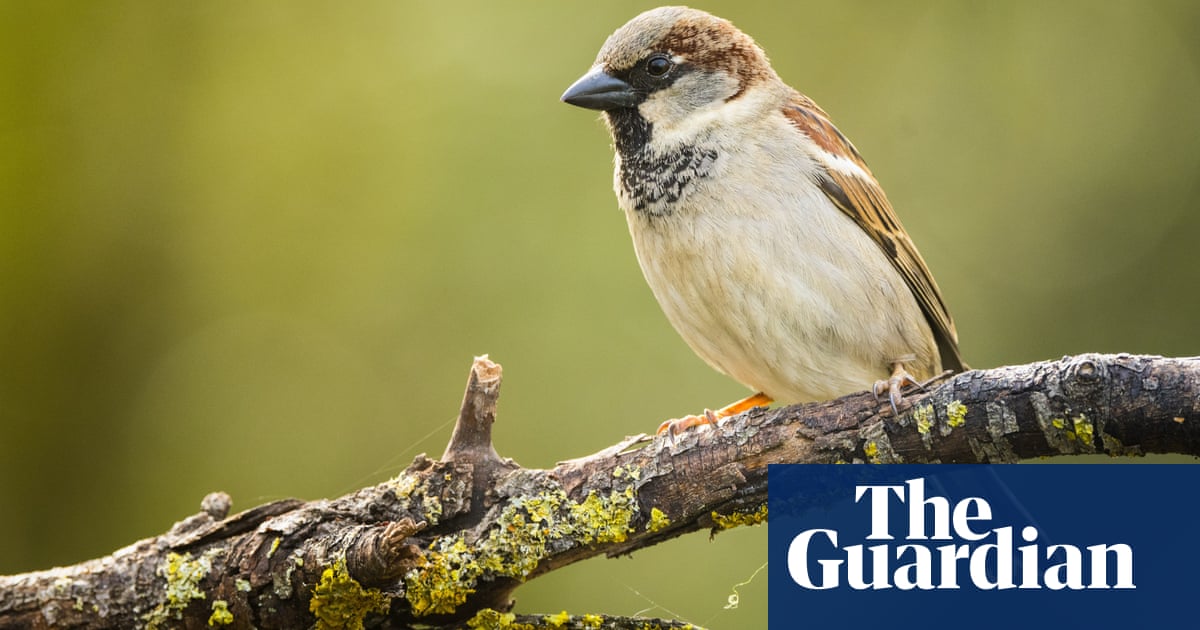A friendly if slightly tuneless chirp is the most ubiquitous birdsong in British gardens with the house sparrow topping the Big Garden Birdwatch charts for the 21st consecutive year, according to the annual RSPB survey.
Blue tits, starlings, wood pigeons and blackbirds were the next most-sighted birds by more than 600,000 participants in the world’s largest wildlife garden survey.
The long-running citizen science project provides conservationists with invaluable data on how common species are faring. Although an average of four house sparrows were spotted in every garden when the survey was conducted in January, the number recorded has declined by nearly 60% since the survey began in 1979.
Go on lads ! I like watching the sparrows at my mom’s house where she has hedgerow . They are raucous .
I love about 12 miles away, and we get finches and tits.
I like sparrows to, although Starlings tend to be even more raucous. Turn up, mob the bird feeder like areseholes and then leave, lol.
I missed it, again.
This is the best summary I could come up with:
Blue tits, starlings, wood pigeons and blackbirds were the next most-sighted birds by more than 600,000 participants in the world’s largest wildlife garden survey.
It remains a popular visitor in winter, when birds arrive from northern Europe, but gardens and house roofs may be an increasingly important refuge for this declining species.
Gardens are an important habitat for many birds, covering an estimated 4,330 sq km in the UK, an area larger than the county of Somerset.
Beccy Speight, the chief executive of the RSPB, said: “Last year’s State of Nature report laid out a grim picture, finding that there’s been no let-up in the decline of our wildlife over recent decades, with one in six species at risk of being lost from Great Britain.
“However, with seven out of eight households lucky enough to have access to a garden, it is the place where many of us can make a positive difference to the ongoing nature crisis.
Gardens and community green spaces can both give a crucial lifeline for struggling species by providing a huge patchwork of potential homes for nature.”
The original article contains 372 words, the summary contains 182 words. Saved 51%. I’m a bot and I’m open source!





